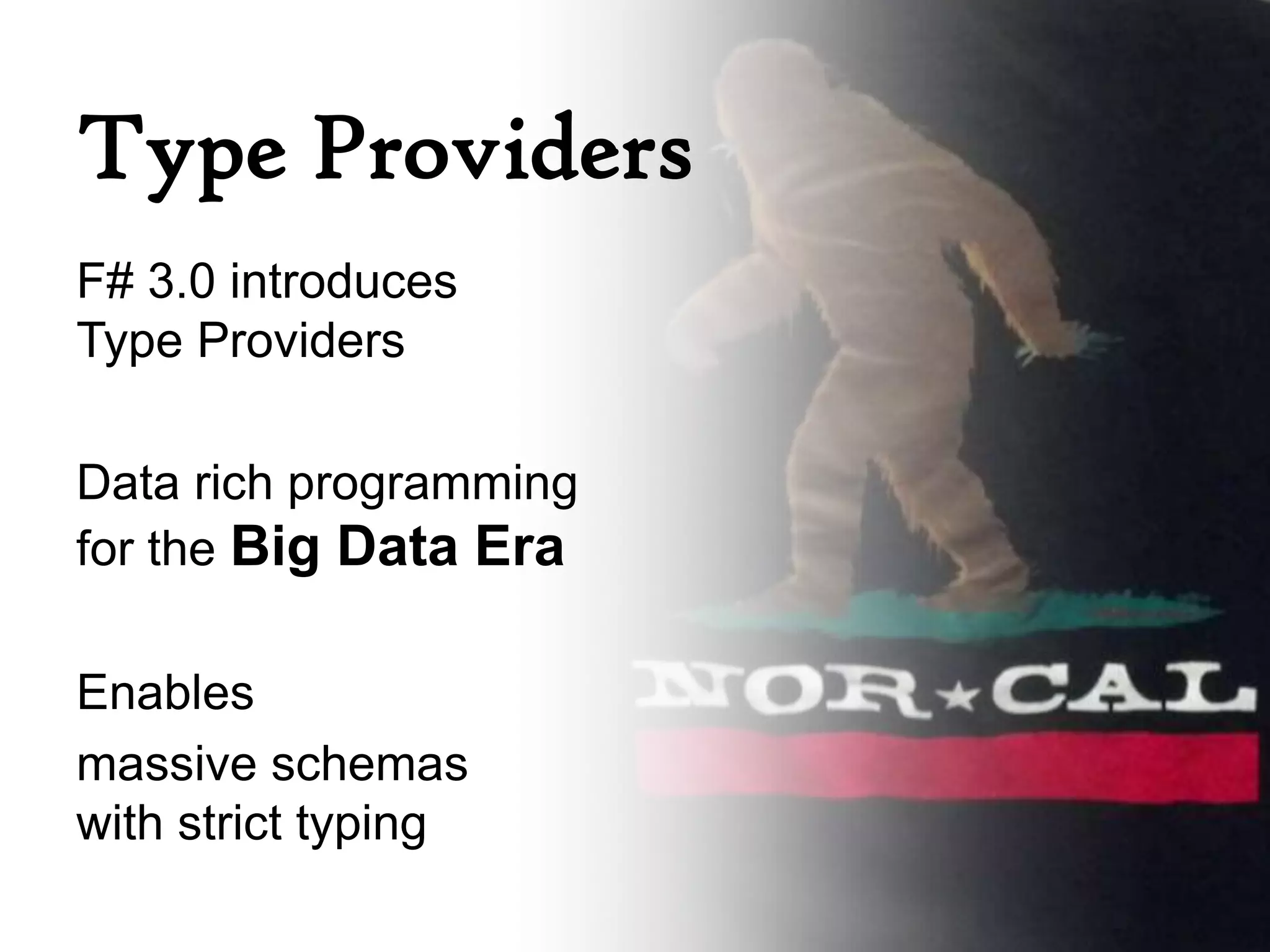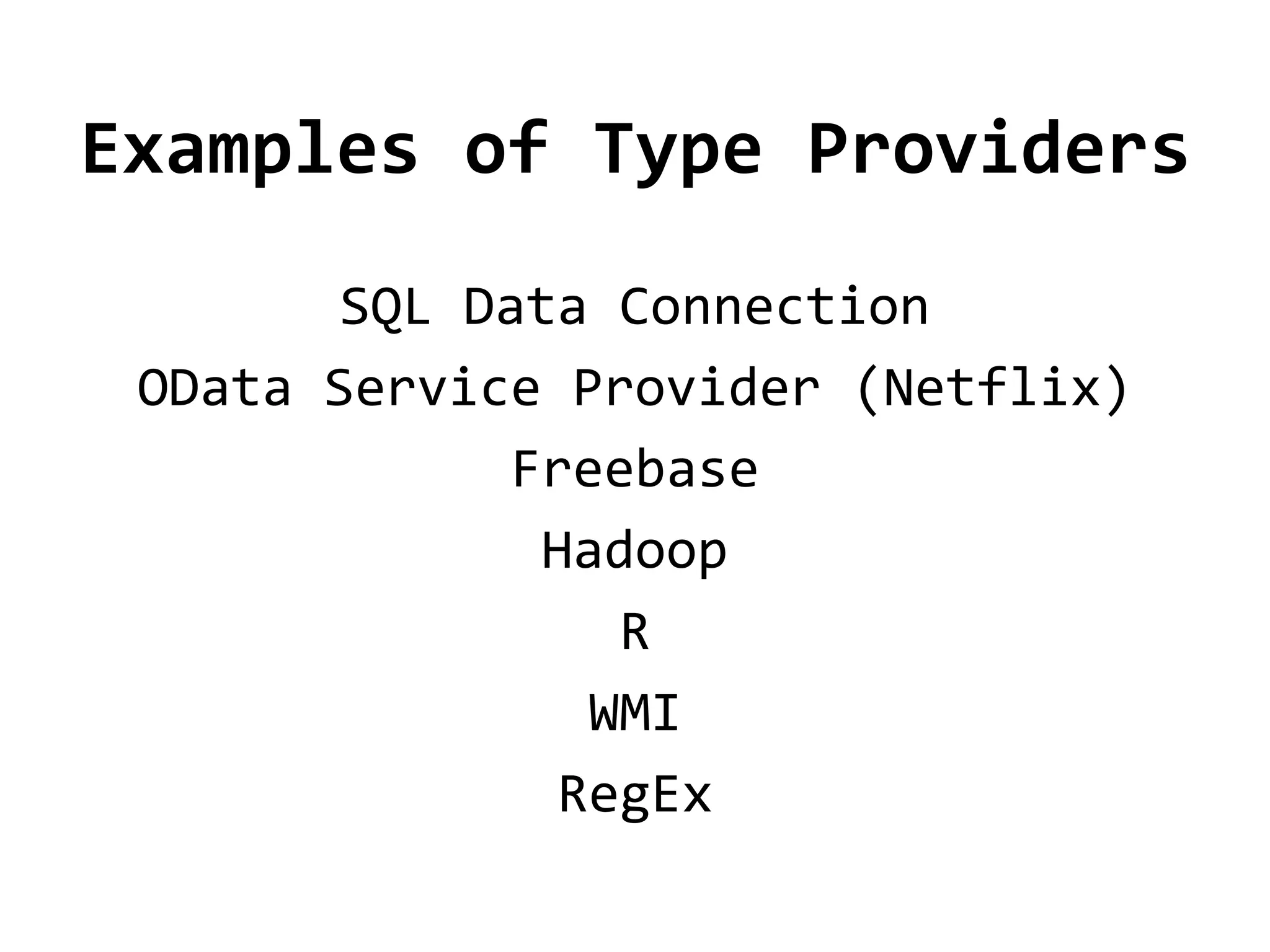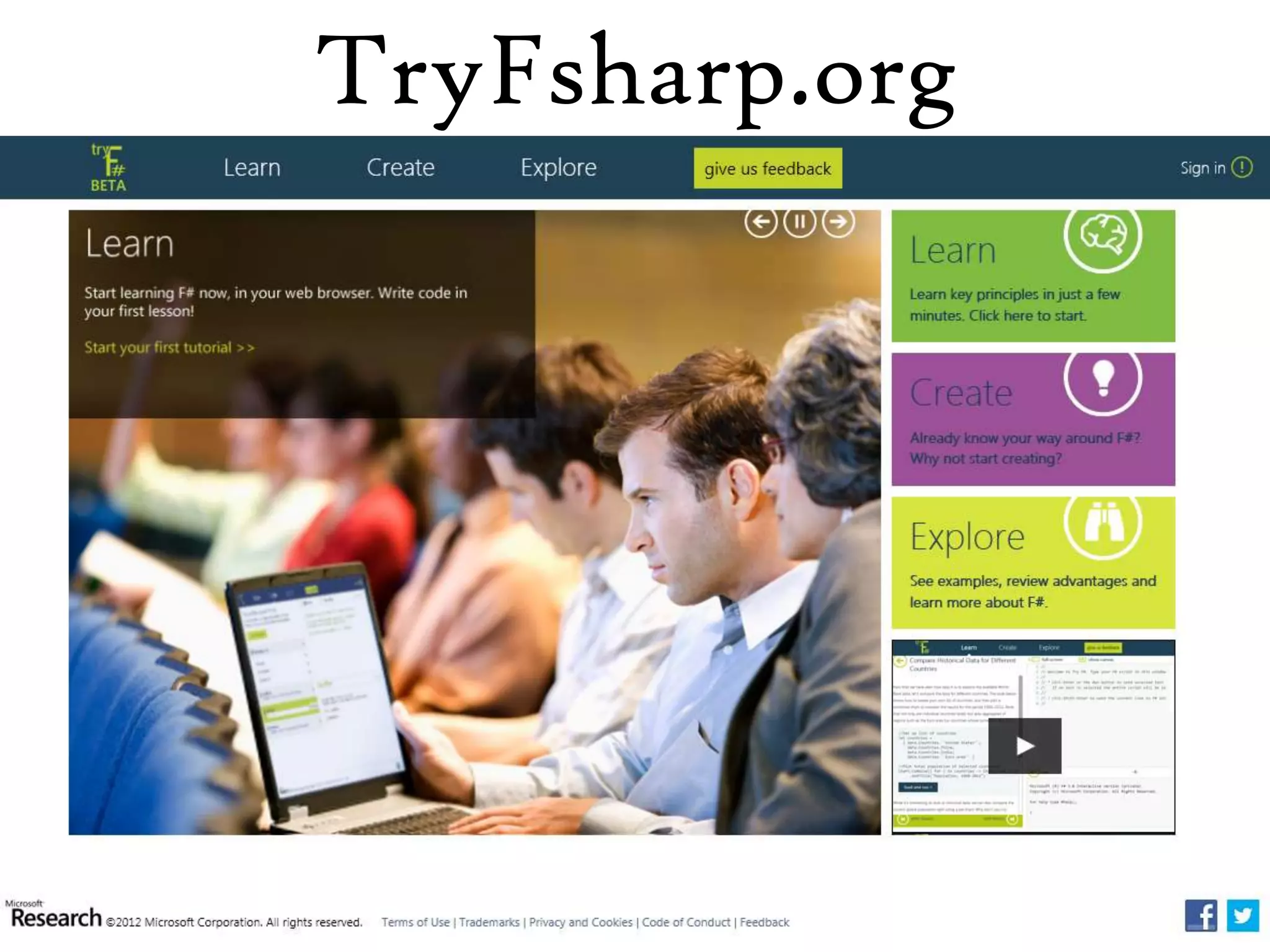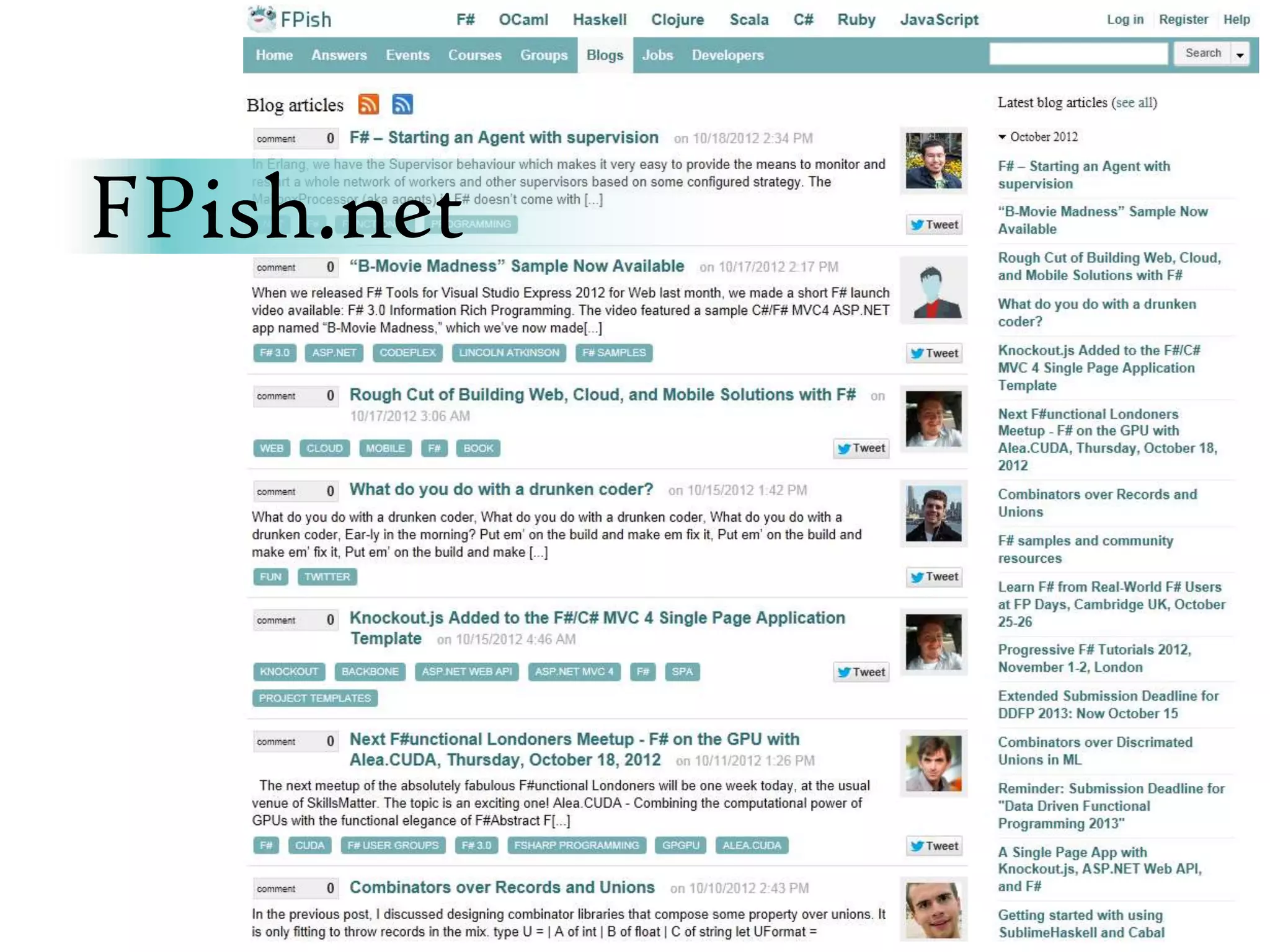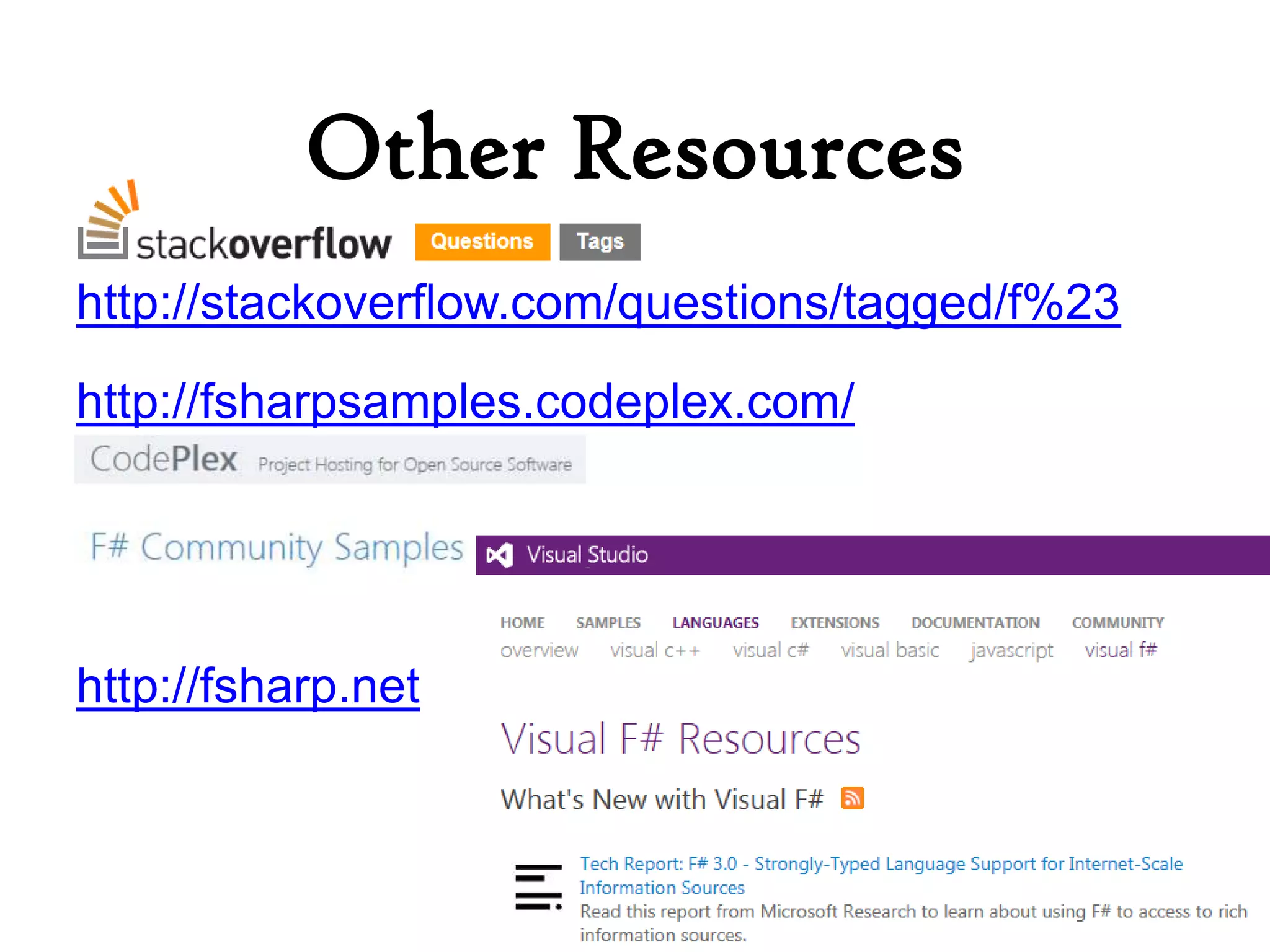The document introduces F# 3.0, a statically typed, open-source functional programming language that features type inferencing, units of measure, and type providers. It compares F# with other programming languages and highlights its unique capabilities, such as immutable data structures and first-class functions. Additionally, it provides resources for further exploration of F# and its applications in data-rich programming.
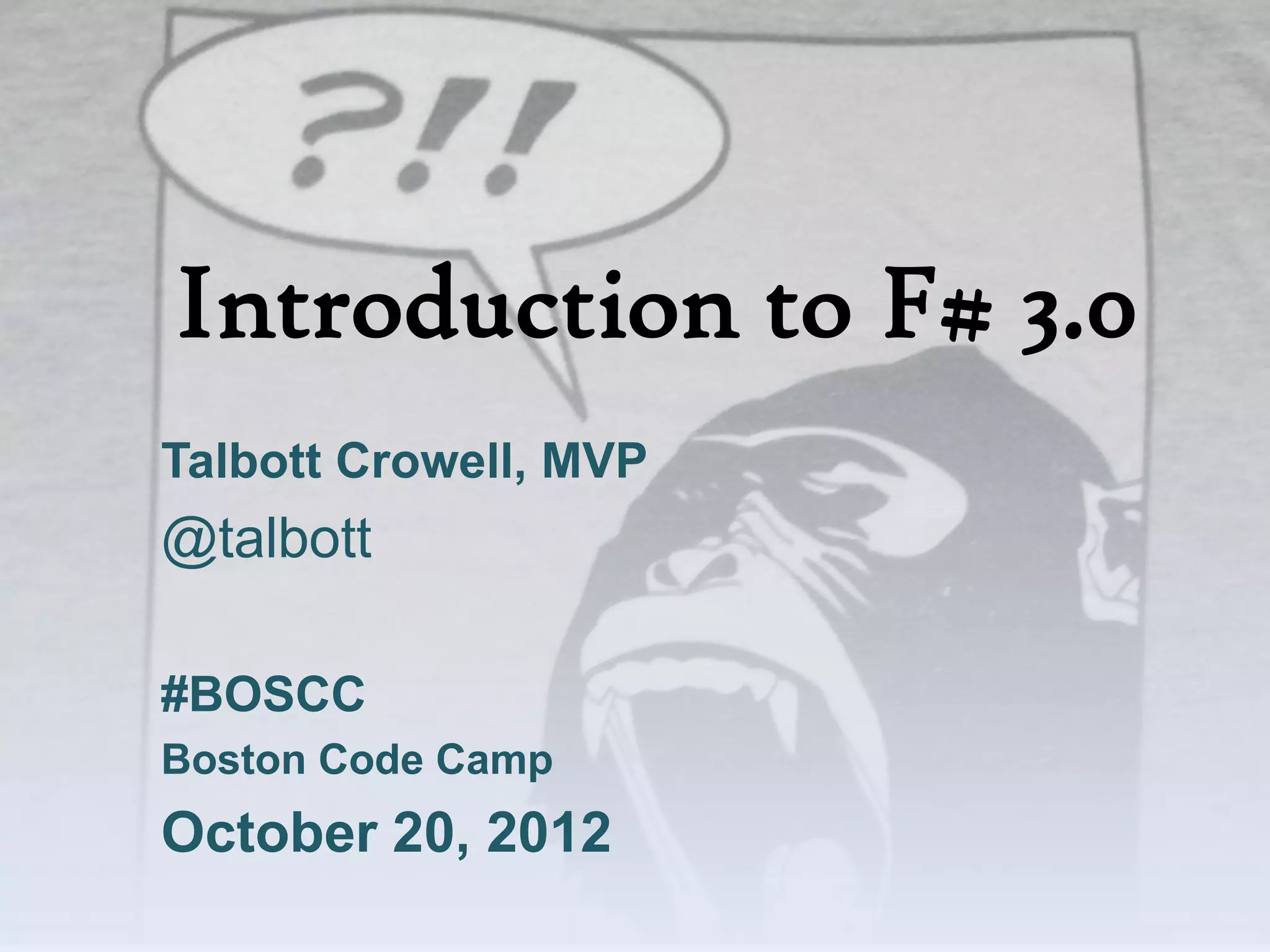
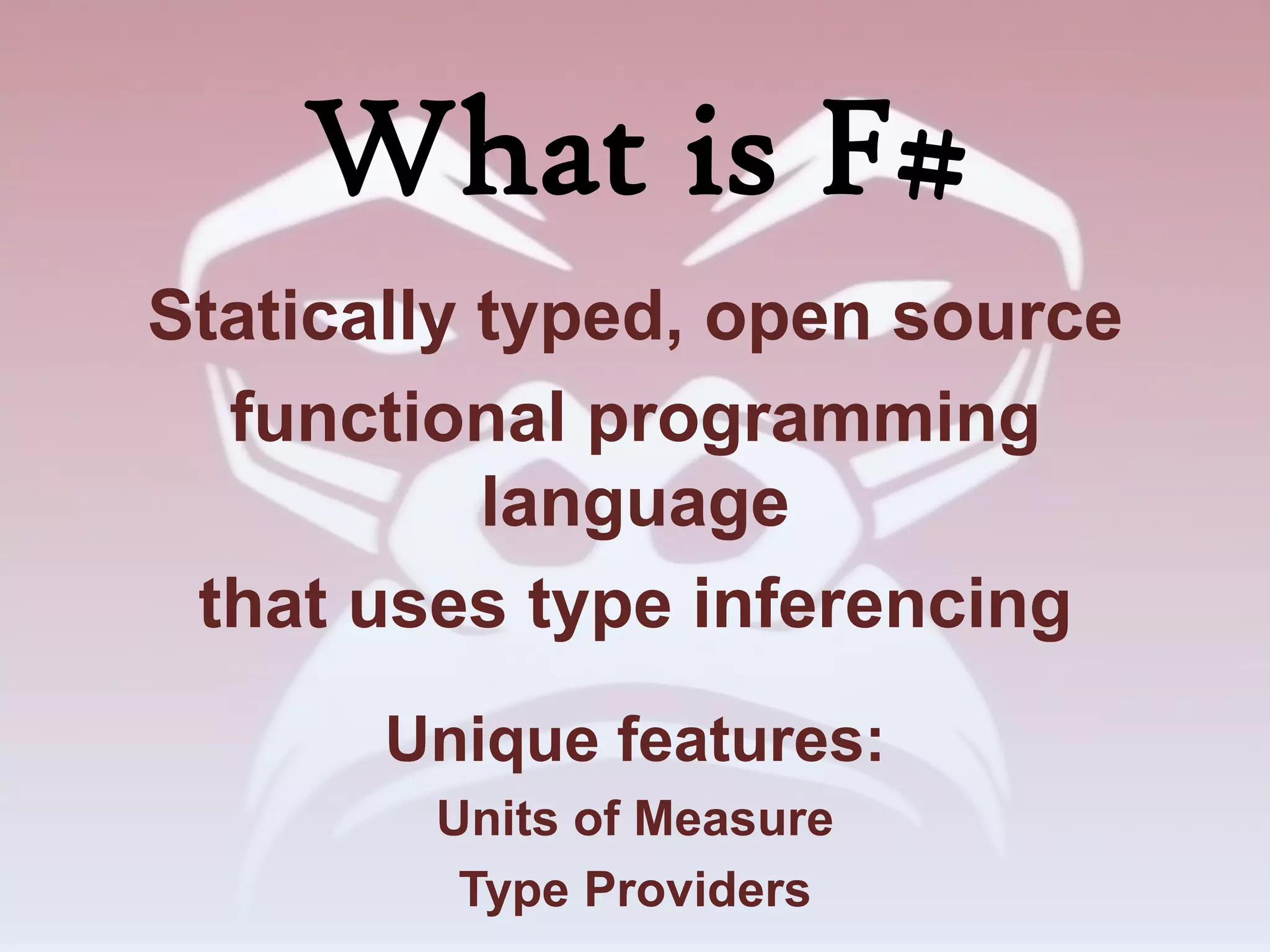
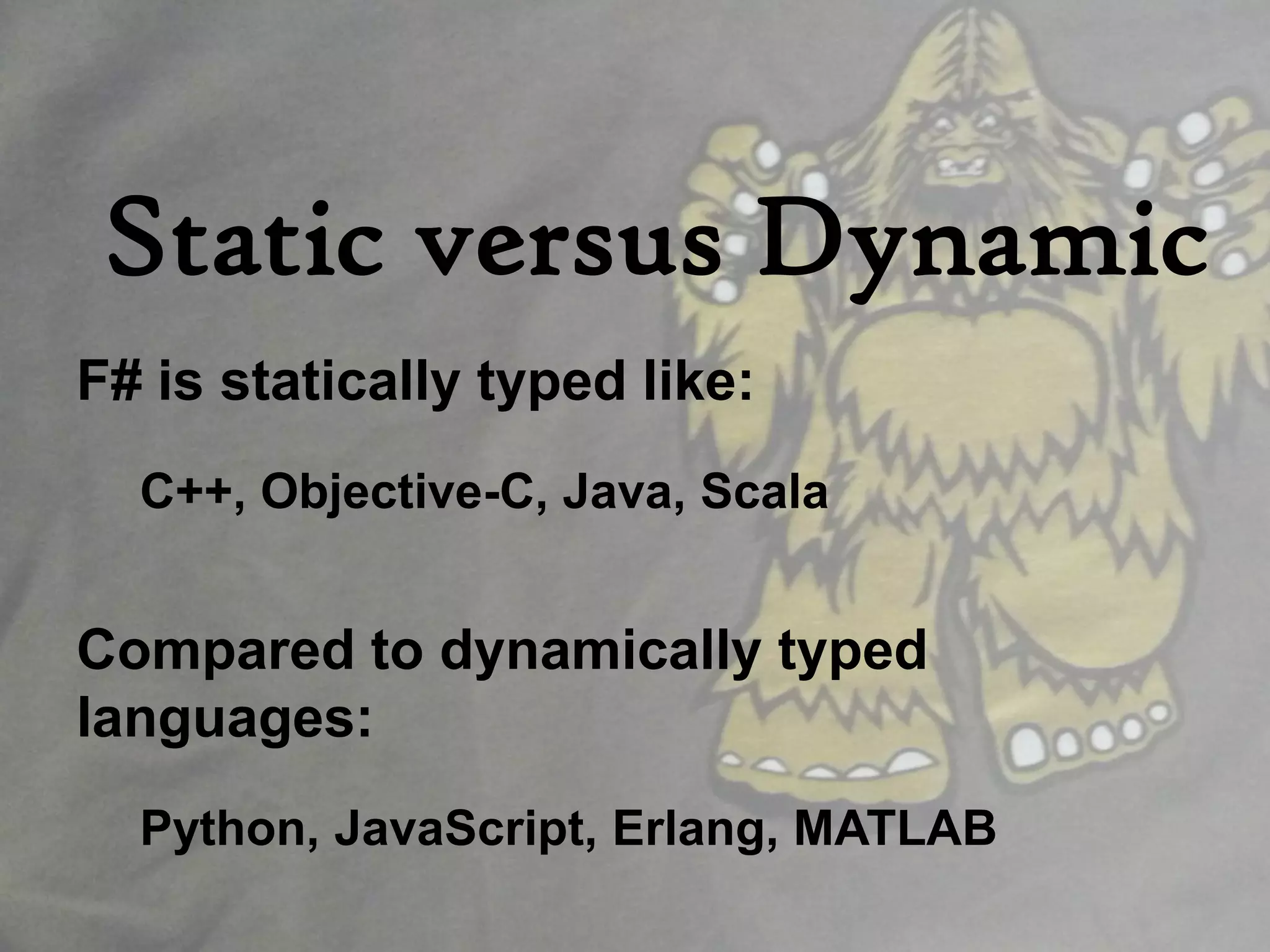

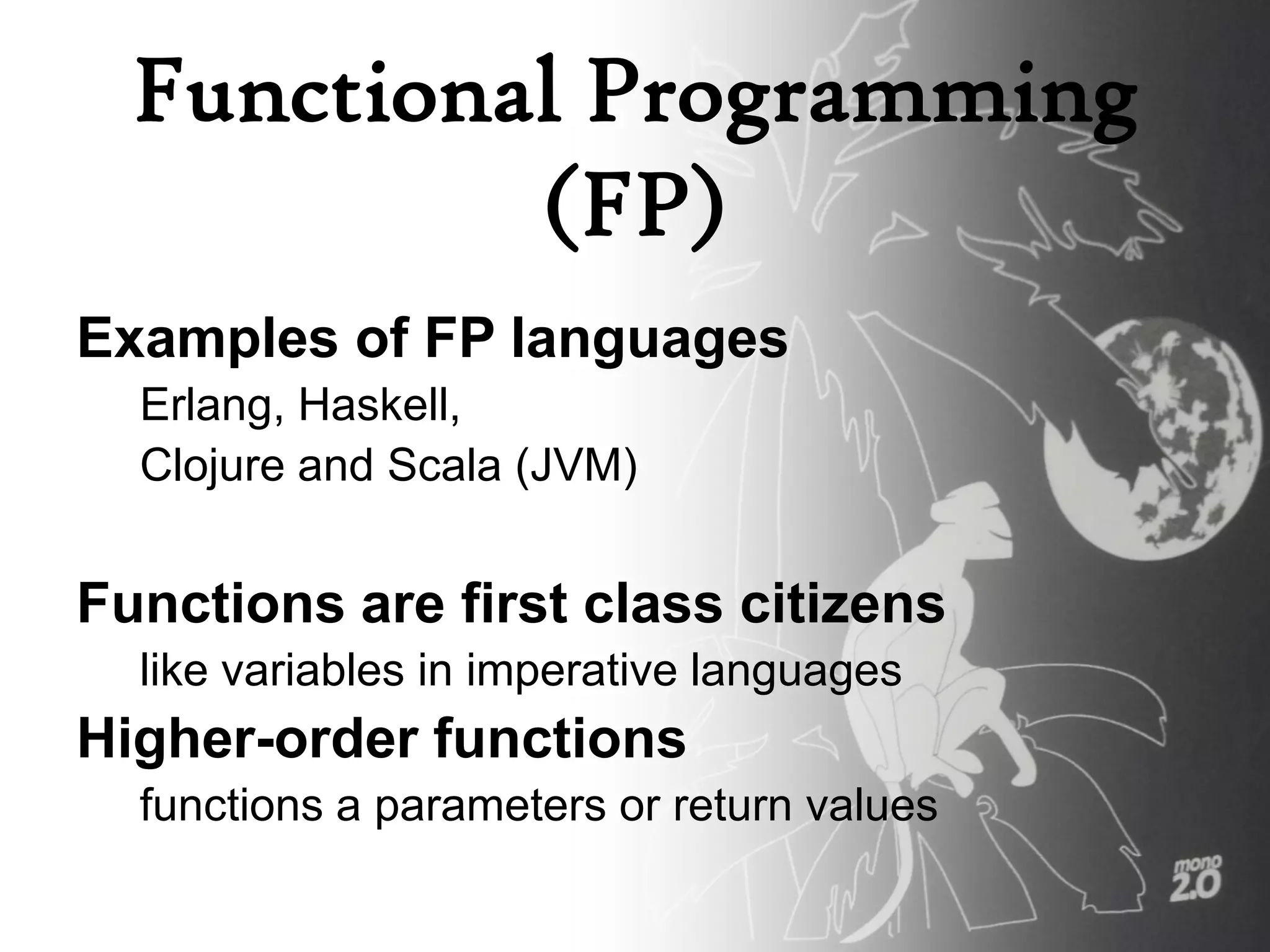
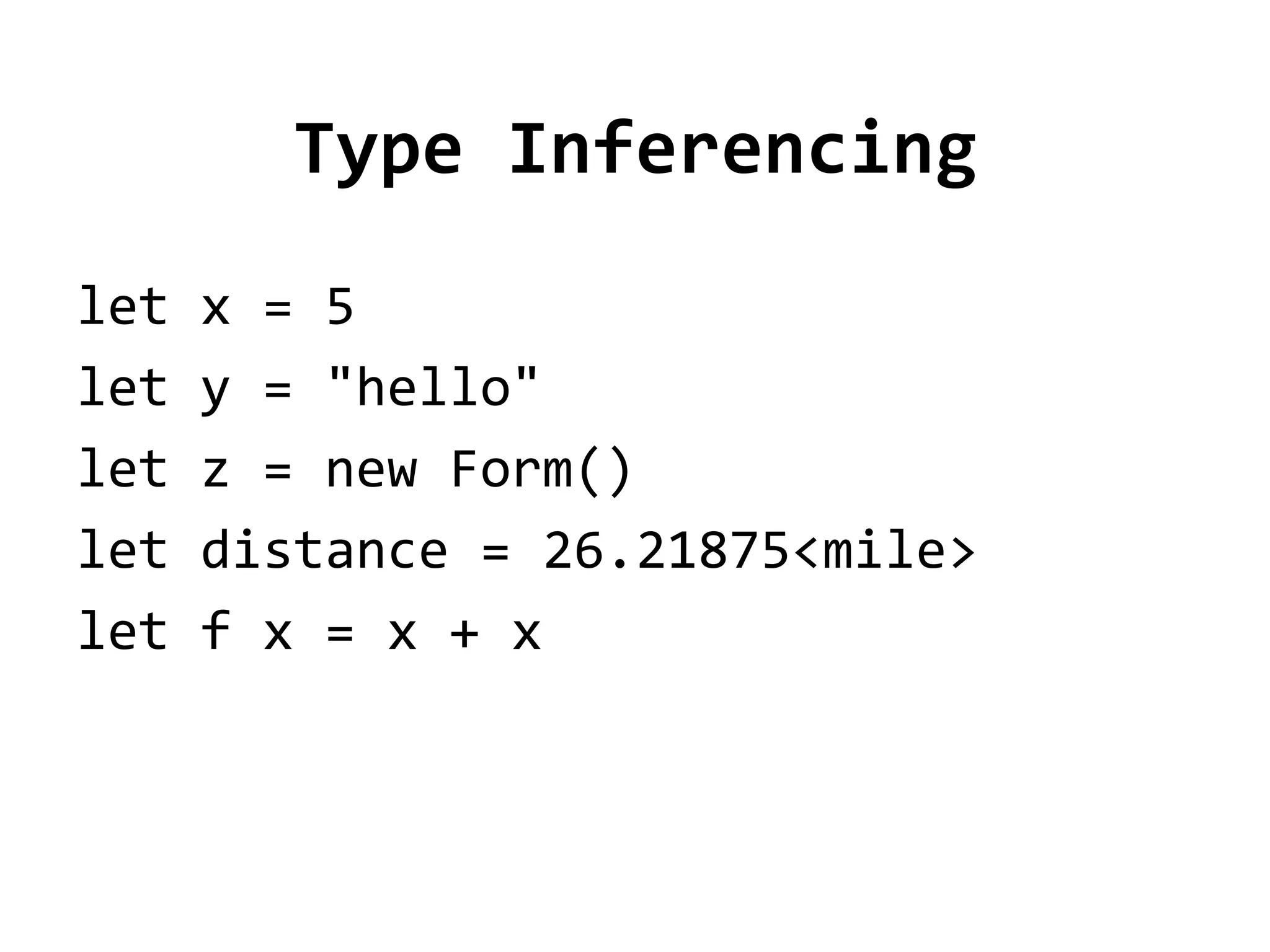
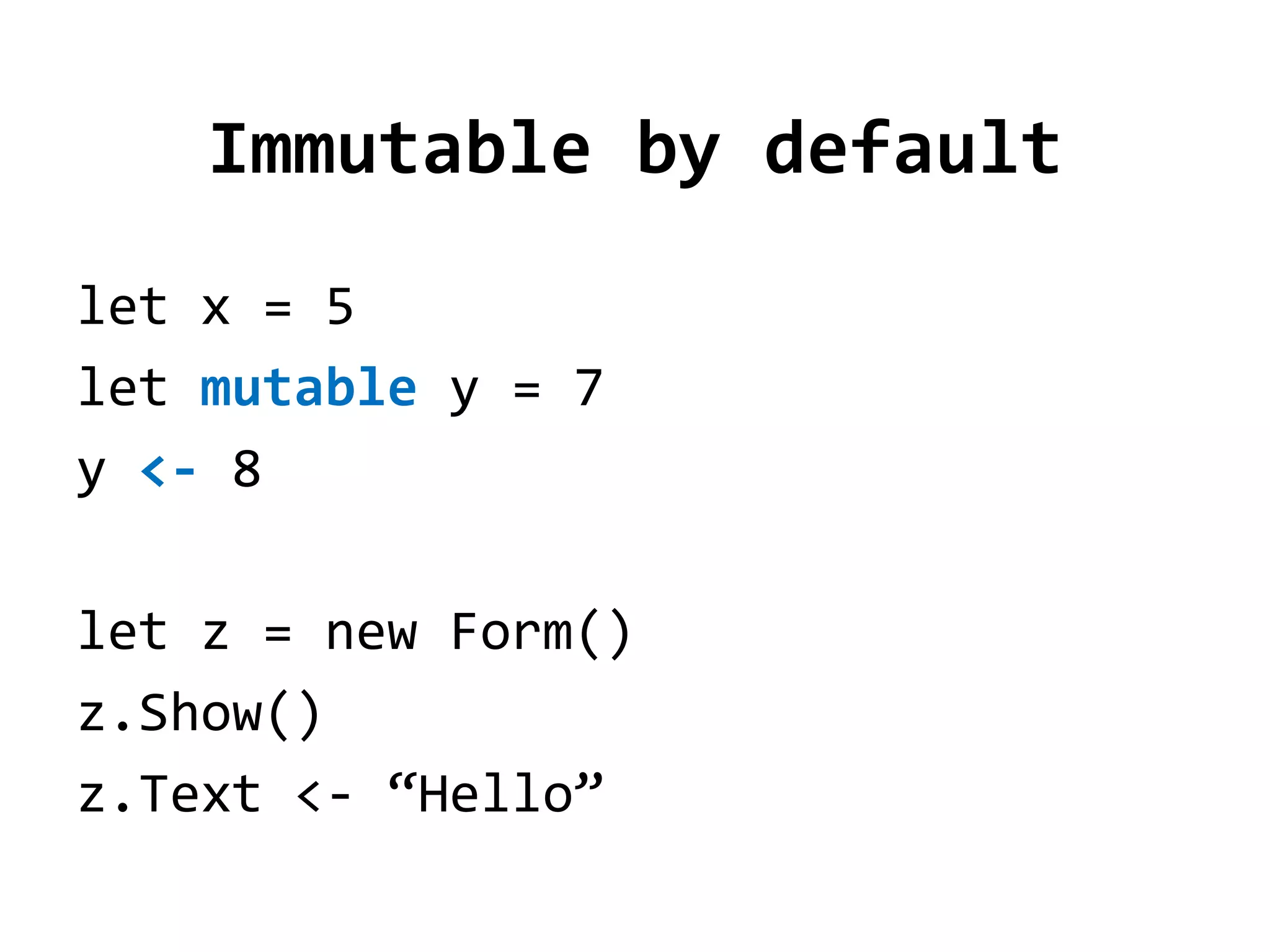
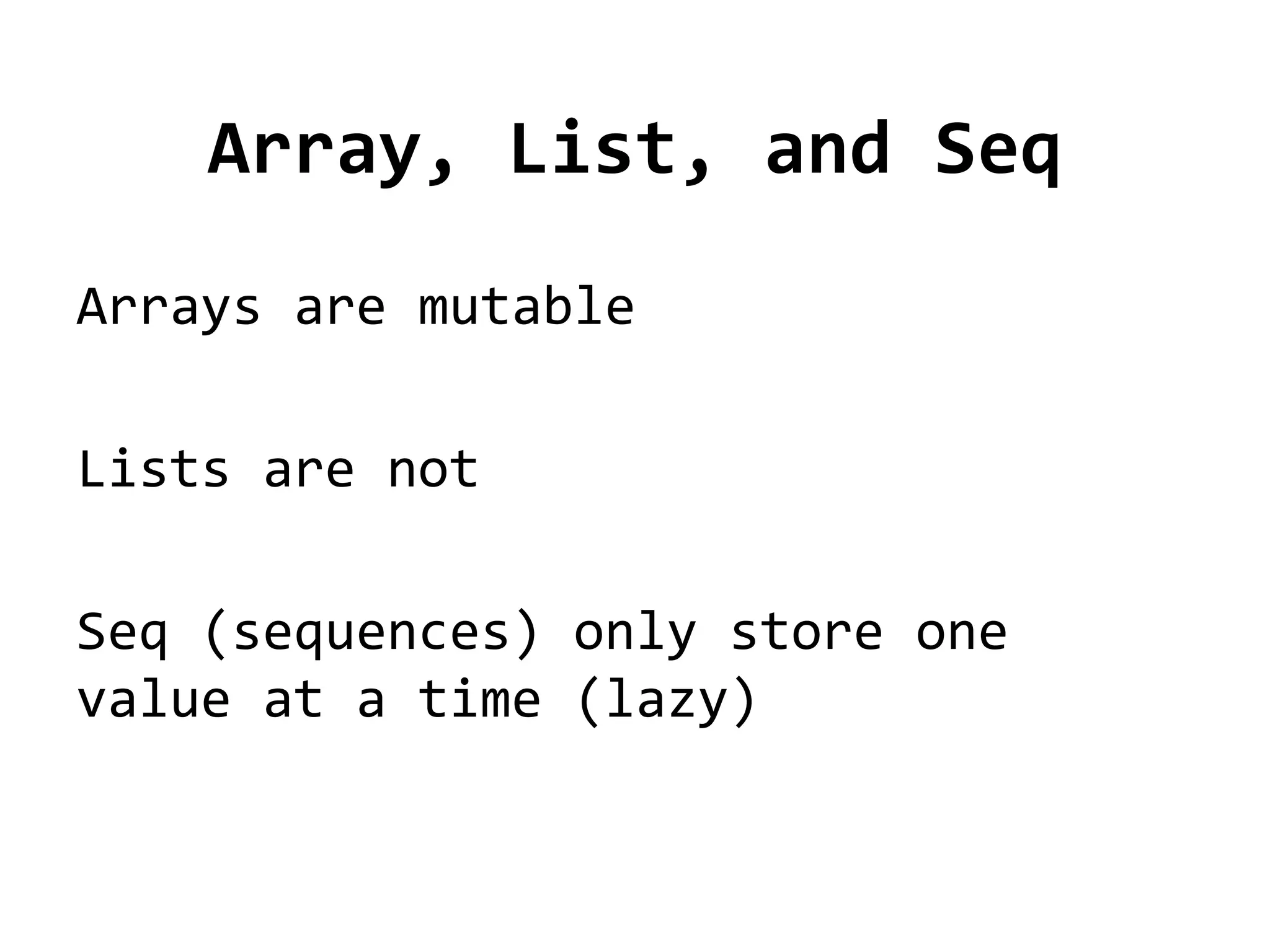
![Array, List, and Seq
let set1 = [|1..10|]
let set2 = [1..10]
let set3 = seq { 1..10 }
set1.[0] <- 999 //mutable](https://image.slidesharecdn.com/introductiontofsharp-121020032606-phpapp01/75/Introduction-to-F-3-0-9-2048.jpg)
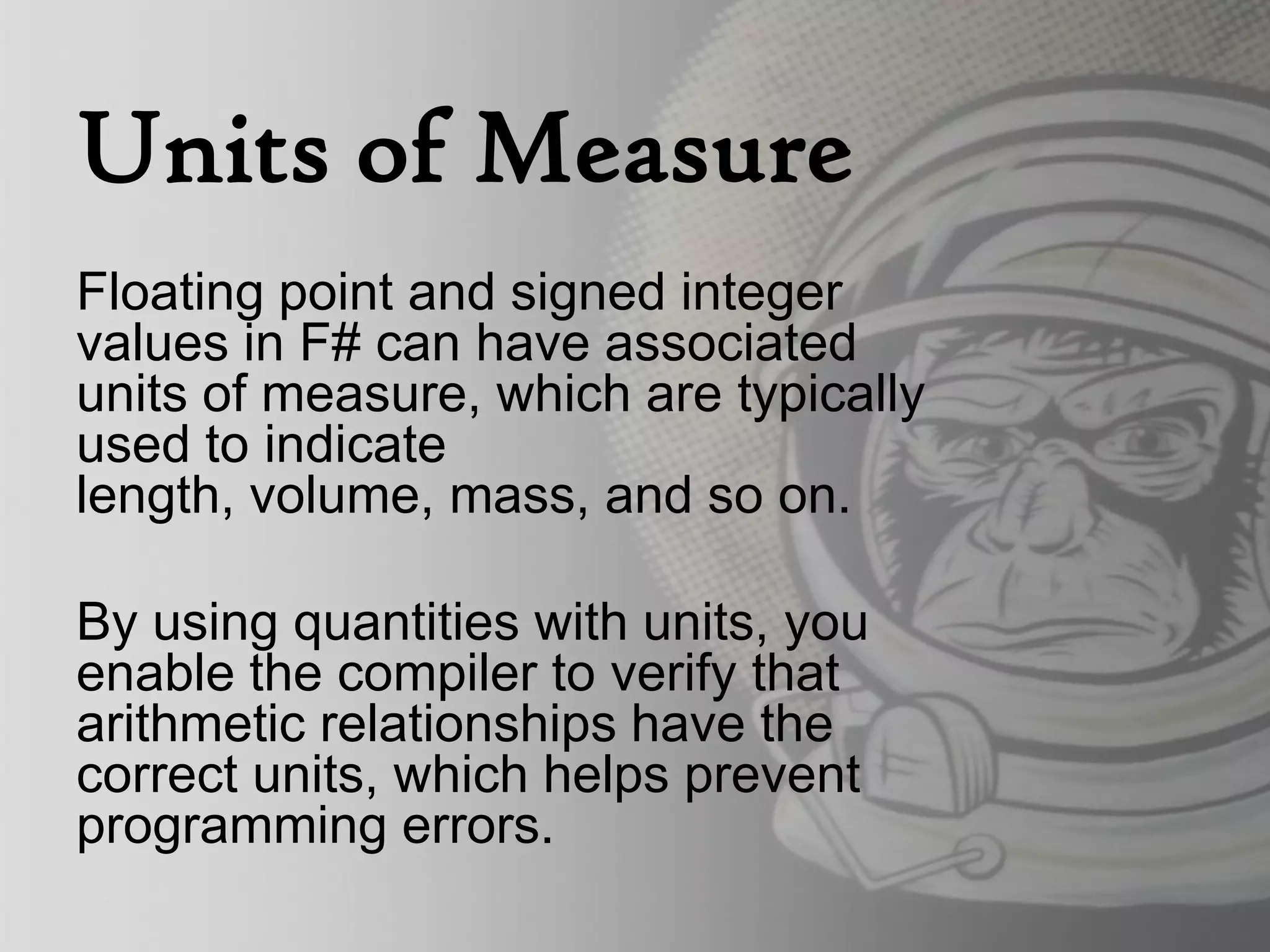
![Units of Measure
[<Measure>] type mile
[<Measure>] type km
let distance1 = 4.0<mile>
let distance2 = 3.0<km>
//compile error
let total = distance1 + distance2](https://image.slidesharecdn.com/introductiontofsharp-121020032606-phpapp01/75/Introduction-to-F-3-0-11-2048.jpg)
![Units of Measure
[<Measure>] type mile
[<Measure>] type km
let convert_mile2km (a : float<mile>) =
a / 0.621371<mile/km>
let distance1 = 4.0<mile>
let distance1a = convert_mile2km distance1
let distance2 = 3.0<km>
let total = distance1a + distance2](https://image.slidesharecdn.com/introductiontofsharp-121020032606-phpapp01/75/Introduction-to-F-3-0-12-2048.jpg)
